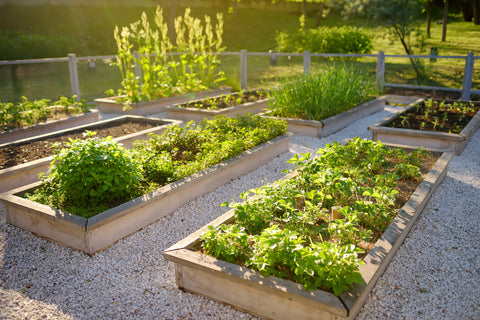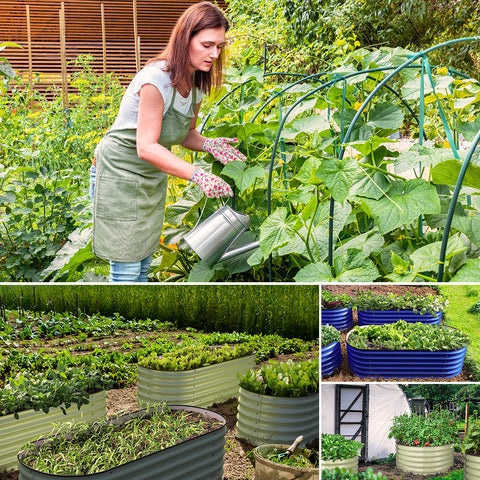Tips from Olle Garden Bed: Why Does Your Zucchini Plant Have Flowers But No Fruit
If you're like most gardeners, you've been waiting all season for your zucchini plants to bear fruit. So, you can imagine that when your plant starts to blossom but has no fruit, you will be disappointed. The following content also has some reference value for raised garden beds.
Don't worry, you are not alone! This is a common problem that many gardeners have.
Next, you will find the most likely reason why the zucchini plant does not bear fruit, and some tips on how to correct the problem.

Why does your plant have flowers but no fruit?
This problem may be because your plants are single, which means they have male and female reproductive organs on each plant. Male flowers grow and produce pollen, while female flowers develop late and need male flowers to pollinate to produce fruit.
If you can't see any fruit on the zucchini plant, even though there are many flowers, it may be that the plant is not pollinated correctly. This can happen if there are not enough bees or other insects around to transfer pollen, or if the weather is too cold or too wet to be active.
You can help improve manual pollination and pollinate flowers yourself. First, identify male flowers and female flowers - male flowers have thinner stems and pollen is visible in the flowers. The female stem is thick, and the base of the flower is slightly swollen, and the fruit will develop.
Then, use a small brush or cotton swab to transfer pollen from male flowers to female flowers. Be sure to do this in the morning when the flowers are fully open and the pollen is most active.
With proper pollination, you should begin to see fruits developing on the zucchini plant in a few weeks.
How to plant and take care of your zucchini crops
Planting and caring for your zucchini crops is simple and fun! Pumpkins are a great addition to any garden, and they are relatively easy to take care of. Here are some tips on how to grow and care for zucchini crops:
Pumpkin plants need plenty of sunlight to grow well, so make sure they are planted in sunny areas. They also need wet, well drained soil. Water zucchini regularly, especially in hot weather.
In addition, zucchini plants are planted in areas with low wind. This will help bees easily pollinate flowers so that your plant can bare its fruit.
The zucchini can be harvested in about 50-60 days. When the fruit is 6-8 inches long and dark green, you will know when they are ready to harvest. To harvest, just cut the zucchini from the plant with a clean sharp knife.
Be sure to check your zucchini plants regularly for pests or diseases. If you find any problems, be sure to treat them immediately with fungicide, baking soda or neem oil.
If properly maintained, your zucchini crops will become rich and delicious! Enjoy fresh zucchini in salad, steamed or baked into bread and muffins. No matter how you enjoy them, locally grown zucchini will be very popular!

Interesting Facts
Pumpkin is a kind of pumpkin originated from Central America. The name "zucchini" comes from the Italian word for pumpkin, Ciccino. Pumpkin was brought to Europe by Italian immigrants in the 14th century and became popular in Italy and France. Zucchini is now grown all over the world.
The plant has edible big yellow flowers, which taste mild. The fruit of zucchini grows on vines and is usually green, but it can also be yellow, orange or black.
Pumpkin is a low calorie food, rich in vitamins and minerals. It is a good source of fiber, antioxidant and a large amount of vitamin B6, riboflavin, folic acid, C and K. It also contains minerals such as potassium and manganese.
In fact, the American diabetes Association recommends eating three to five servings of vegetables a day; Try adding zucchini to your diet! This is a delicious and healthy choice, which will surely satisfy everyone at the table.
No fruit No problem
If you find your zucchini plant is flowering but has no fruit, please do not worry - you are not alone! The most likely reason is that your plant is single and needs some pollination help.
